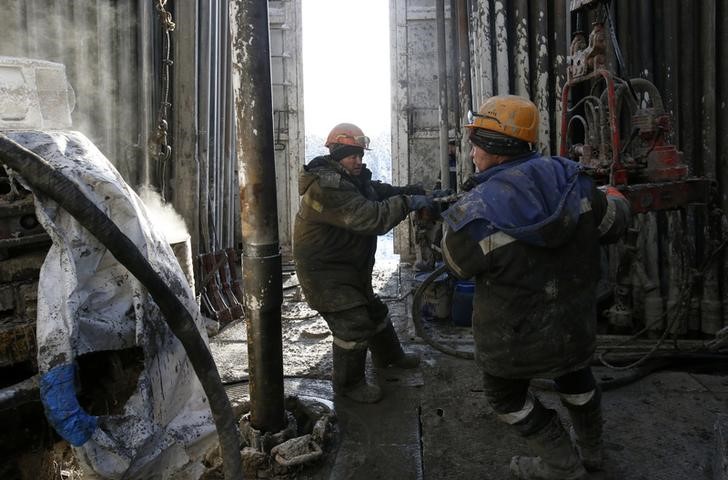By Peter Nurse
Investing.com -- Oil prices retreated Tuesday, weighed by concerns of a global economic slowdown, although further supply disruptions means the market remains tight.
By 09:15 AM ET (1315 GMT), U.S. crude futures traded 3.3% lower at $104.81 a barrel, catching up after Monday’s Independence Day public holiday in the United States, while the Brent contract fell 4.1% to $108.86 a barrel.
U.S. Gasoline RBOB Futures were down 3.5% at $3.5582 a gallon.
Crude has been hit by fears of a global recession, and this continued Tuesday after the Bank of England said the global economic outlook has “deteriorated materially” after surging commodity prices pushed up inflation, posing a further downside risk in months ahead.
Additionally, S&P Global’s composite purchasing managers index for the Eurozone fell to a 16-month low, implying growth of around only 0.2% in the quarter. Weakness in new orders and confidence suggests worse to come in the current quarter.
Crude oil could collapse to $65 a barrel by the end of this year and slump to $45 by end-2023 if a demand-crippling recession hits, Citigroup warned.
“The historical evidence suggests that oil demand goes negative only in the worst global recessions,” the Citi analysts said in the July 5 note. “But oil prices fall in all recessions to roughly the marginal cost.”
That said, losses are limited Tuesday following the news that Norwegian offshore workers began a strike that is expected to reduce oil production by 130,000 barrels per day from Wednesday, accounting for around 6.5% of Norway’s production.
Additionally, while the Organization of the Petroleum Exporting Countries and their allies including Russia, known as OPEC+, confirmed last week its previously announced plan for modest output increases in August, the group has struggled in the past to make good on these promises.
“OPEC+ producers have limited room to increase output significantly, and so are unable to provide much relief to the market,” said ING analysts, in a note. “OPEC production declined over June, with the bulk of members falling short of their output targets.”
This doesn’t mean that the political pressure on the group’s members to increase output will stop growing.
U.K. Prime Minister Boris Johnson called on the cartel to increase output more aggressively earlier Tuesday, and U.S. President Joe Biden is set to visit the Middle East later this month with energy prices likely to be at the top of the agenda.
Monday’s holiday means that the weekly crude inventory data from the industry body American Petroleum Institute, usually released on a Tuesday, will be delayed by a day.
